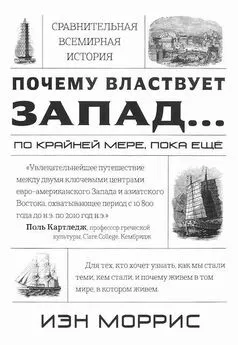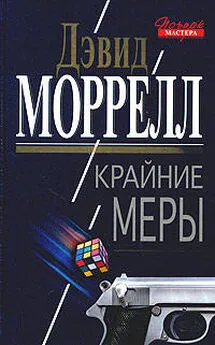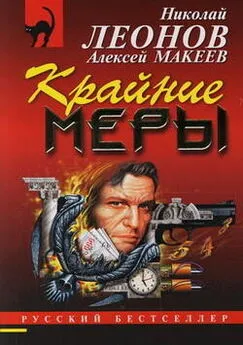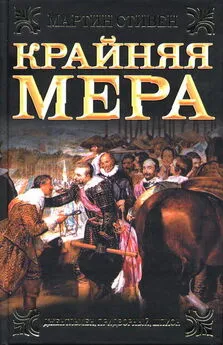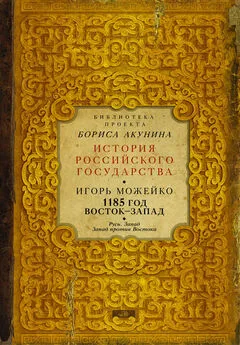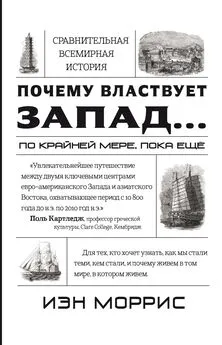Иэн Моррис - Почему властвует Запад... по крайней мере, пока еще
- Название:Почему властвует Запад... по крайней мере, пока еще
- Автор:
- Жанр:
- Издательство:Карьера Пресс
- Год:2016
- Город:Москва
- ISBN:978-5-00074-078-1
- Рейтинг:
- Избранное:Добавить в избранное
-
Отзывы:
-
Ваша оценка:
Иэн Моррис - Почему властвует Запад... по крайней мере, пока еще краткое содержание
Известный историк и археолог, преподаватель Стэнфордского Университета Иэн Моррис рассказывает о 15 тысячелетиях человеческой истории, последние два из которых Запад играет в мире доминирующую роль. Моррис объясняют причину упадка и поражения Востока в историческом соревновании с Западом. Но будет ли властвовать Запад бесконечно? Иэн Моррис предлагает свежий взгляд практически на каждое важное историческое событие. Он описывает закономерности человеческой истории, анализирует события современности и делает прогнозы относительно ситуации в будущем.
Иэн Мэттью Моррис дает неожиданные ответы, подкрепляя их тщательно выверенными фактами, сводя воедино последние результаты исследований в археологии, искусстве, метеорологии, медицине, нейропсихологии, антропологии.
Почему властвует Запад... по крайней мере, пока еще - читать онлайн бесплатно ознакомительный отрывок
Интервал:
Закладка:
Perkovich, George, and Dominick Zaum. Abolishing Nuclear Weapons. London: International Institute for Strategic Studies, Adelphi Paper 396, 2008.
Perrin, Noel. Giving Up the Gun: Japans Reversion to the Sword, 1543-1879. Boston: Godine, 1979.
Perry, John, and Bardwell Smith, eds. Essays on Tang Society. Leiden: E. J. Brill, 1976.
Peters, Francis. Muhammad and the Origins of Islam. Albany: State University of New York Press, 1994.
Petraglia, Michael, and Ceri Shipton. “Large Cutting Tool Variation West and East of the Movius Line.” Journal of Human Evolution 55 (2008), pp. 962-66.
Piggott, Joan. The Emergence ofjapanese Kingship. Stanford: Stanford University Press, 1997.
Pincus, Steve. 1688: The First Modern Revolution. New Haven: Yale University Press, 2009.
Pines, Yuri. Foundations of Confucian Thought: Intellectual Life in the Chunqiu Period, 722-453 BCE. Honolulu: University of Hawaii Press, 2002.
Pinker, Steven. How the Mind Works. New York: Norton, 1997.
Pluciennik, Mark. Social Evolution. London: Duckworth, 2005.
Pohl, Mary, et al. “Microfossil Evidence for Pre-Columbian Maize Dispersals in the Neotropics from San Andres, Tabasco, Mexico.” Proceedings of the National Academy of Sciences 104 (2007), pp. 6870-75.
Pollard, Helen. Tariacuris Legacy: The Prehispanic Tarascan State. Norman: University of Oklahoma Press, 1993.
Pollock, Susan. Ancient Mesopotamia. Cambridge, UK: Cambridge University Press, 1999.
Pomeranz, Kenneth. The Great Divergence: China, Europe, and the Making of the Modern World Economy. Princeton: Princeton University Press, 2000.
Popper, Karl. Conjectures and Refutations. London: Roudedge, 1963.
Portal, Jane, ed. The First Emperor: China’s Terracotta Army. London: British Museum, 2007.
Porter, Andrew, ed. The Oxford History of the British Empire III: The Nineteenth Century. Oxford: Oxford University Press, 2001.
Porter, Roy, ed. The Cambridge History of Science IV: The Eighteenth Century. Cambridge, UK: Cambridge University Press, 2003.
Postgate, Nicholas. Early Mesopotamia: Society and Economy at the Dawn of History. Cambridge, UK: Cambridge University Press, 1993.
Potts, Dan. The Archaeology of Elam: Formation and Transformation in an Ancient Iranian State. Cambridge, UK: Cambridge University Press, 1999.
Pourshariati, Parvaneh. The Decline and Fall of the Sasanian Empire. London: I. B. Tauris, 2008.
Powell, Adam, Stephen Shennan, and Mark Thomas. “Late Pleistocene Demography and the Appearance ofModern Human Behavior.” Science 324 (2009), p. 1298 (doi: 10.1126/ science.l 170165).
Powell, Barry. Writing: Theory and History of the Technology of Civilization. Oxford: Blackwell, 2009.
Preston, Diana. The Boxer Rebellion. New York: Berkley Books, 1999.
Price, Simon. Rituals and Power: The Roman Imperial Cult in Asia Minor. Cambridge, UK: Cambridge University Press, 1984.
Pritchard, James B., ed. Ancient Near Eastern Texts Relating to the Old Testament. 3rd ed. Princeton: Princeton University Press, 1969.
Provan, Iain, V. Philips Long, and Tremper Longman. A Biblical History of Israel. Louisville, KY: Westminster John Knox Press, 2003.
Puett, Michael. To Become a God: Cosmology, Sacrifice, and Self-Divinization in Early China. Cambridge, MA: Harvard University Press, 2002.
Qian, Weihong, and Zhu, Yafen. “Little Ice Age Climate Near Beijing, China, Inferred from Historical and Stalagmite Records.” Quaternary Research 57 (2002), pp. 109-19.
Qiao, Yu. “Development of Complex Societies in the Yiluo Region: A GIS-Based Population and Agricultural Area Analysis.” Bulletin of the Indo-Pacific Prehistory Association 27 (2007), pp. 61-75.
Quattrocchi, Angelo, and Tom Nairn. The Beginning of the End: France, May 1968. London: Penguin, 1968.
Rawson, Jessica. Western Zhou Ritual Bronzes from the Arthur M. Sackler Collections. 2 vols. Cambridge, MA: Harvard University Press, 1990.
Ray, Debraj. Development Economics. Princeton: Princeton University Press, 1998.
Razeto, Anna. 2008. “Life in the Ghetto: Urban Living in Han China and the Roman Mediterranean.” Unpublished paper delivered at the conference “State Power and Social Control in Ancient China and Rome,” Stanford University, March 19, 2008.
Redford, Donald. Egypt, Canaan, and Israel in Ancient Times. Princeton: Princeton University Press, 1992.
Renfrew, Colin. The Archaeology of Cult. London: British School of Athens, 1985.
Renfrew, Colin. Archaeology and Language. London: Pelican, 1987.
Renfrew, Colin, and Katie Boyle, eds. Archaeogenetics. Cambridge, UK: Cambridge University Press, 2000.
Renfrew, Colin, and Iain Morley, eds. Becoming Human: Innovation in Prehistoric Material and Spiritual Culture. Cambridge, UK: Cambridge University Press, 2009.
Reynolds, David. One World Divisible: A Global History Since 1945. New York: Norton, 2000.
Richards, Jay, et al. Are We Spiritual Machines? Ray Kurzweil vs. the Critics of Strong A.I. Seattle: Discovery Institute, 2002.
Richards, John. Unending Frontier: An Environmental History of the Early Modern World. Berkeley: University of California Press, 2003.
Richardson, Lewis Fry. Statistics of Deadly Quarrels. Pacific Grove, CA: Boxwood Press, 1960.
Richerson, Peter, Robert Boyd, and Robert Bettinger. “Was Agriculture Impossible During the Pleistocene but Mandatory During the Holocene?” American Antiquity 66 (2001), pp. 387-411.
Riesman, David. Abundance for What? Garden City, NY: Doubleday, 1964.
Rifkin, Jeremy. 1998. The Biotech Century: Harnessing the Gene and Remaking the World. New York: Tarcher, 1998.
Riley, James. Rising Life Expectancy: A Global History. Cambridge, UK: Cambridge University Press, 2001.
Roberts, Andrew. The Storm of War: A New History of the Second World War. London: Allen Lane, 2009.
Roberts, Neil. The Holocene. Oxford: Blackwell, 1998.
Robinson, James, ed. The Emergence of the Modern World: Comparative History and Science. New York: Cambridge University Press, 2010.
Roco, Mihail, and William Bainbridge. “Converging Technologies for Improving Human Health: Nanotechnology, Biotechnology, Information Technology, and Cognitive Science.” Washington, DC: National Science Foundation, 2002 (http://www.wtec.org/ Converging Technologies/1 /NBIC_report.pdf).
Roetz, Heiner. Confucian Ethics of the Axial Age. Albany: State University of New York Press, 1993.
Rogers, Clifford, ed. The Military Revolution Debate. Boulder, CO: Westview Press, 1995.
Rose, Steven. The Future of the Brain: The Promise and Perils of Tomorrows Neuroscience. Oxford: Oxford University Press, 2006.
Rosen, Arlene. “The Role of Environmental Change in the Development of Complex Societies in Early China.” Bulletin of the Indo-Pacific Prehistory Association 27 (2007), pp. 39-48.
Rosen, Stanley. Justinian’s Flea: Plague, Empire, and the Birth of Europe. New York: Viking, 2007.
Rosenfeld, Gavriel. The World Hitler Never Made. Cambridge, UK: Cambridge University Press, 2005.
Ross, James Bruce and Mary Martin McLaughlin, eds. The Portable Renaissance Reader. New York: Penguin, 1953.
Rossabi, Morris. Khubilai Khan: His Life and Times. Berkeley: University of California Press, 1988.
Rothman, Mitchell, ed. Uruk Mesopotamia and Its Neighbors. Santa Fe, NM: School of American Research, 2001.
Rowe, William. Saving the World: Chen Hongmou and Elite Consciousness in Eighteenth-Century China. Stanford: Stanford University Press, 2001.
---. Chinas Last Empire: The Great Qing. Cambridge, MA: Harvard University Press, 2009.
Rozman, Gilbert. Urban Networks in Ching China and Tokugawa Japan. Princeton: Princeton University Press, 1973.
Runciman, Steven. The Fall of Constantinople, 1453. Cambridge, UK: Cambridge University Press, 1990.
Russell, Peter. Prince Henry “The Navigator”: A Life. New Haven, CT: Yale University Press, 2000.
Ryan, William, and Walter Pitman. Noah’s Flood. New York: Simon and Schuster, 1999.
Sagan, Scott, and Steven Miller, eds. The Global Nuclear Future. Daedalus 138.4 (2009), pp. 7-171, and 139.1 (2010), pp. 7-140. Cambridge, MA: MIT Press.
Sahlins, Marshall. “La première société d’abondance.” Les temps modernes 268 (1968), pp. 641-80.
---. Stone Age Economies. Chicago: Aldine, 1972.
---. Culture in Practice. New York: Zone Books, 2005.
Sakharov, Andrei. “The Danger of Thermonuclear War.” Foreign Affairs 61 (1983),pp. 1001—1016.
Saliba, George. Islamic Science and the Making of the European Renaissance. Cambridge, MA: Harvard University Press, 2007.
Sallares, Robert. 2007. “Ecology.” In Walter Scheidel et al„ eds., The Cambridge Economic History of the Greco-Roman World, pp. 15-37/ Cambridge, UK: Cambridge University Press, 2007.
Sailer, Richard. “Framing the Debate on the Ancient Economy.” In J. G. Manning and Ian Morris, eds., The Ancient Economy, pp. 223-38. Stanford: Stanford University Press, 2005.
Sanchez-Mazas, Alicia, ed. Past Human Migrations in East Asia: Matching Archaeology, Linguistics, and Genetics. London: Routledge, 2008.
Sandbrook, Dominic. Never Had It So Good: A History of Britain from Suez to the Beades. London: Abacus, 2005.
Sanderson, Stephen. Evolutionism and Its Critics. Boulder, CO: Westview Press, 2007.
Sarris, Peter. “The Justinianic Plague: Origins and Effects.” Continuity and Change 17 (2002), pp. 169-82.
---. Economy and Society in the Age of Justinian. Cambridge, UK: Cambridge University Press, 2006.
Savage-Rumbaugh, Sue, and Roger Lewin. Kanzi: The Ape at the Brink of the Human Mind. New York: Wiley, 1994.
Savolainen, Peter, et al. “Genetic Evidence for an East Asian Origin of Domestic Dogs.” Science 298 (2002), pp. 1610-13.
Saxenian, AnnaLee. Regional Advantage: Culture and Competition in Silicon Valley and Route 128. Cambridge, MA: Harvard University Press, 1994.
Scheidel, Walter. Death on the Nile: Disease and the Demography of Roman Egypt. Leiden: E. J. Brill, 2001.
---. “A Model of Demographic and Economic Change in Roman Egypt After the Antonine Plague.” Journal of Roman Archaeology 15 (2002), pp. 97-114.
---. “A Model of Real Income Growth in Roman Italy.” Historia 56 (2007), pp. 322-46.
---. “Real Wages in Ancient and Medieval Economies: Evidence for Living Standards from 2000 BCE to 1300 CE to CE,” 2008. http://www.princeton.edu/~pswpc/index.html.
---, ed. Rome and China: Comparative Perspectives on Ancient World Empires. New York: Oxford University Press, 2009a.
---. “The Monetary Systems of the Han and Roman Empires.” In Walter Scheidel, ed., Rome and China, pp. 137-207. New York: Oxford University Press, 2009b.
---. “In Search of Roman Economic Growth.” Journal of Roman Archaeology 22, 2009c, pp. 46-70.
---. “Studying the State.” In Peter Bang and Walter Scheidel, eds., The Oxford Handbook to the Ancient State. Oxford: Oxford University Press, forthcoming.
Scheidel, Walter, Ian Morris, and Richard Sailer, eds. The Cambridge Economic History of the Greco-Roman World. Cambridge, UK: Cambridge University Press, 2007.
Schettler, G., and R. Romer. “Atmospheric Pb-Pollution by Pre-Medieval Mining Detected in the Sediments of the Brackish Karst Lake An Loch Mor, Western Ireland.” Applied Geochemistry 21 (2006), pp. 58-82.
Schmandt-Besserat, Denise. “’Ain Ghazal ‘Monumental’ Figures.” Bulletin of the American Schools of Oriental Research 310 (1998), pp. 1-17.
Scholz, Christopher, et al. “East African Megadroughts Between 135 and 75 Thousand Years Ago and Bearing on Early-Modern Human Origins.” Proceedings of the National Academy of Sciences 104 (2007), pp. 16416-21.
Читать дальшеИнтервал:
Закладка:
